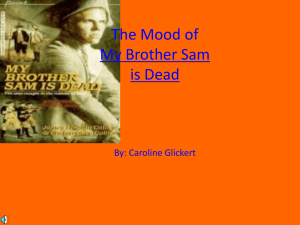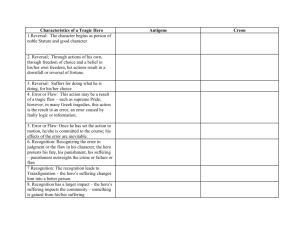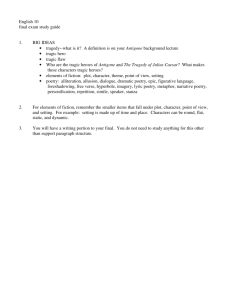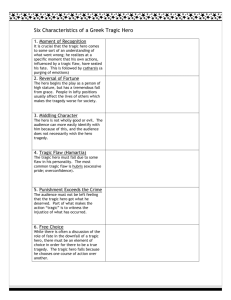My Tragic Flaw Brainstorming
advertisement
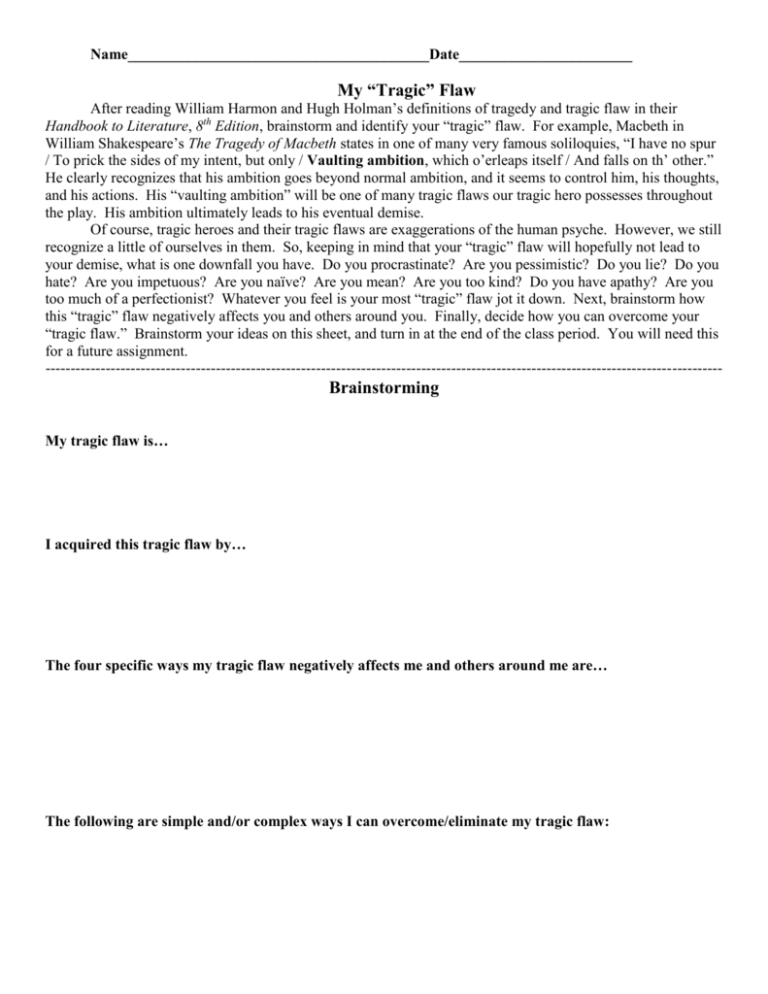
Name________________________________________Date_______________________ My “Tragic” Flaw After reading William Harmon and Hugh Holman’s definitions of tragedy and tragic flaw in their Handbook to Literature, 8th Edition, brainstorm and identify your “tragic” flaw. For example, Macbeth in William Shakespeare’s The Tragedy of Macbeth states in one of many very famous soliloquies, “I have no spur / To prick the sides of my intent, but only / Vaulting ambition, which o’erleaps itself / And falls on th’ other.” He clearly recognizes that his ambition goes beyond normal ambition, and it seems to control him, his thoughts, and his actions. His “vaulting ambition” will be one of many tragic flaws our tragic hero possesses throughout the play. His ambition ultimately leads to his eventual demise. Of course, tragic heroes and their tragic flaws are exaggerations of the human psyche. However, we still recognize a little of ourselves in them. So, keeping in mind that your “tragic” flaw will hopefully not lead to your demise, what is one downfall you have. Do you procrastinate? Are you pessimistic? Do you lie? Do you hate? Are you impetuous? Are you naïve? Are you mean? Are you too kind? Do you have apathy? Are you too much of a perfectionist? Whatever you feel is your most “tragic” flaw jot it down. Next, brainstorm how this “tragic” flaw negatively affects you and others around you. Finally, decide how you can overcome your “tragic flaw.” Brainstorm your ideas on this sheet, and turn in at the end of the class period. You will need this for a future assignment. --------------------------------------------------------------------------------------------------------------------------------------- Brainstorming My tragic flaw is… I acquired this tragic flaw by… The four specific ways my tragic flaw negatively affects me and others around me are… The following are simple and/or complex ways I can overcome/eliminate my tragic flaw:


